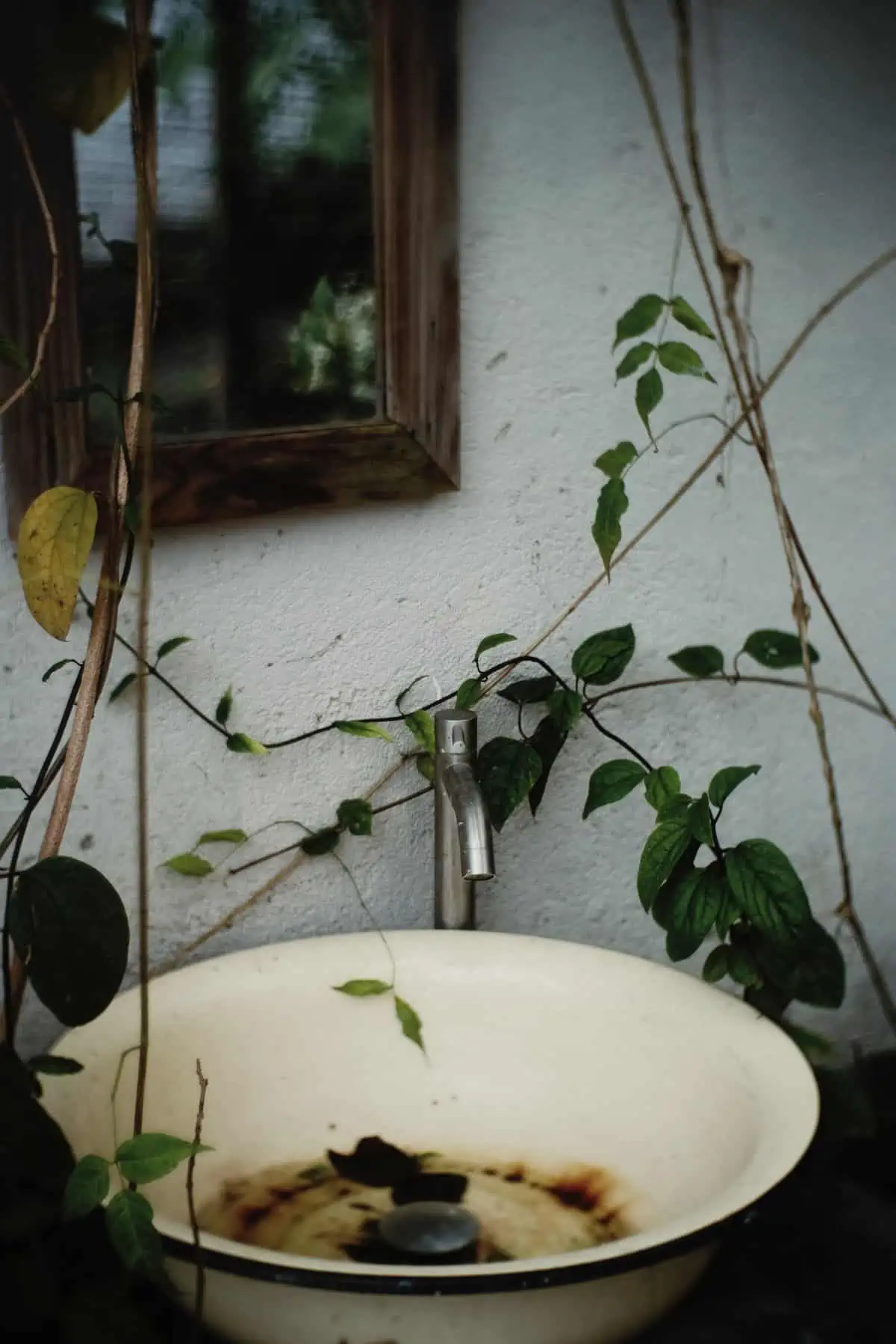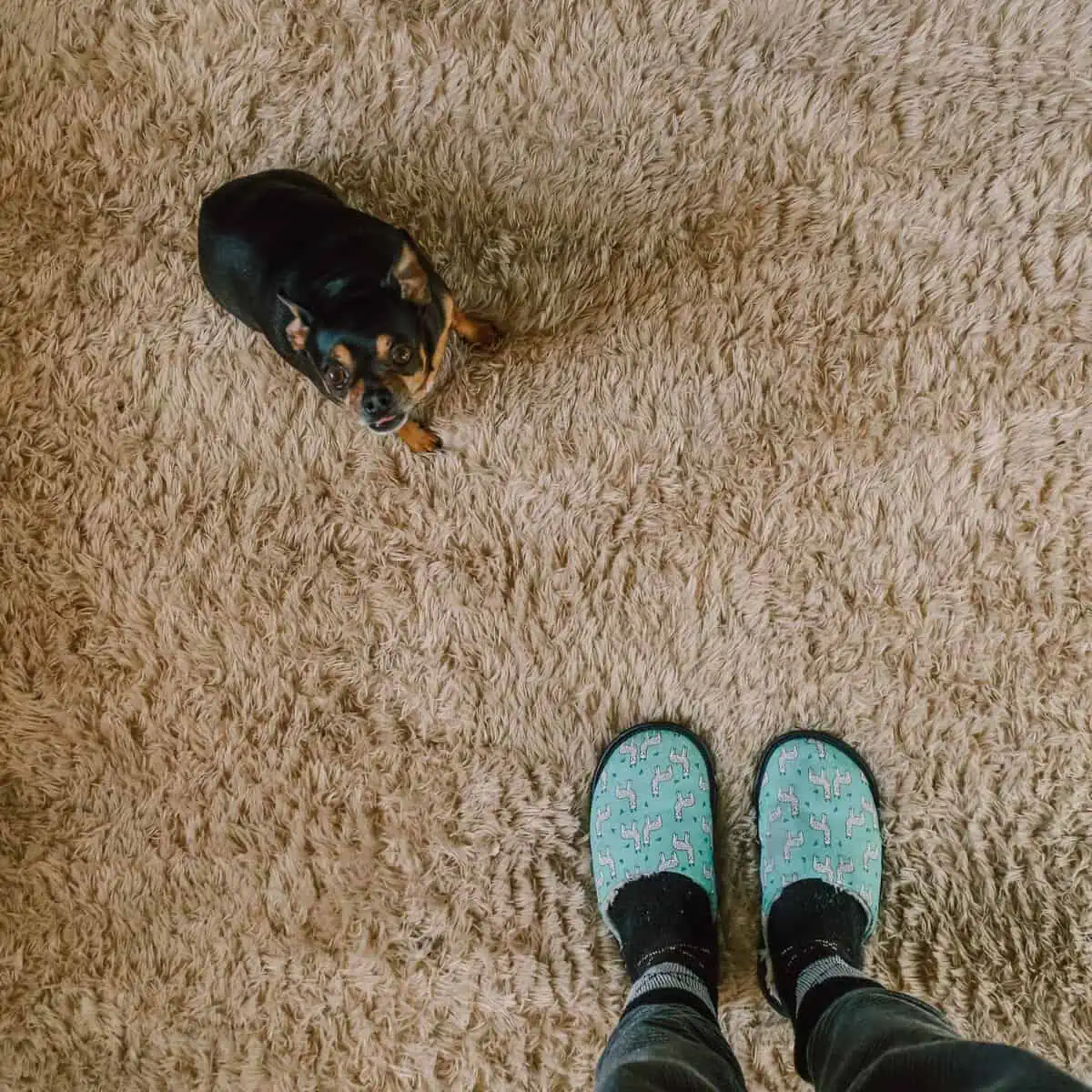Why are there Ants in my Bathroom? Picture this: you walk into your bathroom, ready to start your day, only to find a trail of tiny ants marching along your countertop. It’s a perplexing sight, and you can’t help but wonder, “Why are there ants in my bathroom?” These uninvited guests can be quite the nuisance, but fear not! Let’s gain insights into their behavior, reasons for their presence, and effective strategies to bid them farewell. So, let’s roll up our sleeves and tackle this buzzing problem head-on!
Why Are There Ants in My Bathroom?
Ants are incredibly resourceful creatures, always on the lookout for food, water, and shelter. Although your bathroom might seem like an unlikely place for ants to invade, it can offer enticing opportunities for these tiny intruders. Here are a few possible reasons why ants find their way into your bathroom:
1. Attracted by Moisture
- The Need for Water
Ants are constantly on the hunt for water sources to sustain their colonies. Bathrooms provide an ideal environment for these moisture-seeking insects. The presence of leaky pipes, dripping faucets, or even condensation on bathroom surfaces can serve as attractive water sources for ants. These resourceful pests are adept at detecting even the smallest water droplets, leading them straight to your bathroom.
- Moisture-Prone Areas
Ants are particularly drawn to areas in the bathroom where moisture accumulates. This includes shower stalls, bathtub rims, sinks, and areas around toilet bases. These damp areas create an environment suitable for ants to thrive, providing them with the necessary hydration they require.
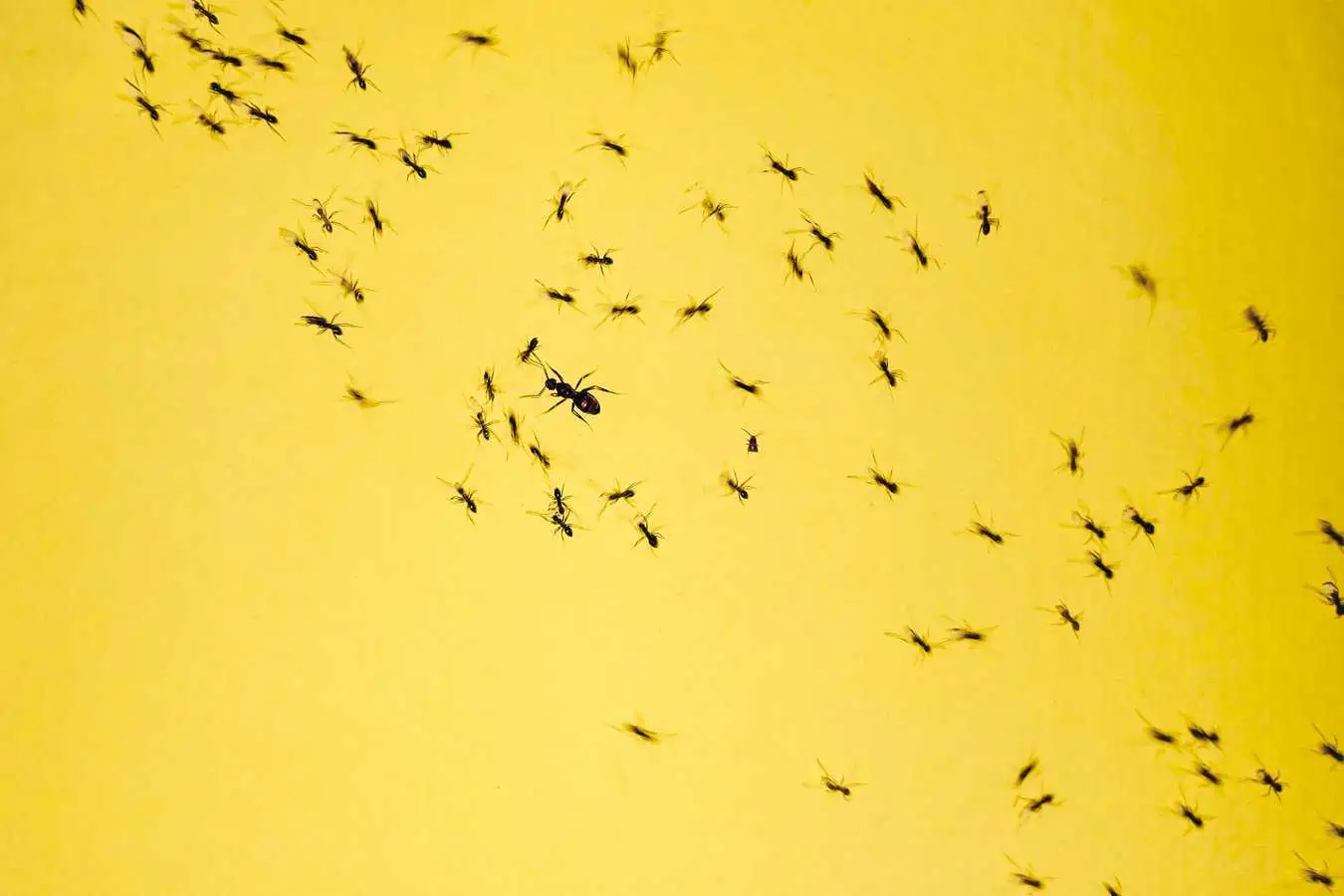
2. Food Sources
- Leftover Residues
Apart from water, ants are also driven by the need for sustenance. Bathrooms often contain remnants of spilled toiletries, such as toothpaste, soap, and other personal care products. These residues can serve as a feast for hungry ants. Even the smallest trace of sugary or protein-based substances can attract these opportunistic insects.
- Pet Food and Trash
If you keep pet food or have a trash can in your bathroom, ants can easily find their way to these food sources. It’s crucial to ensure that any pet food is stored in sealed containers and that the trash can is tightly covered. By eliminating easily accessible food sources, you can discourage ants from infiltrating your bathroom.
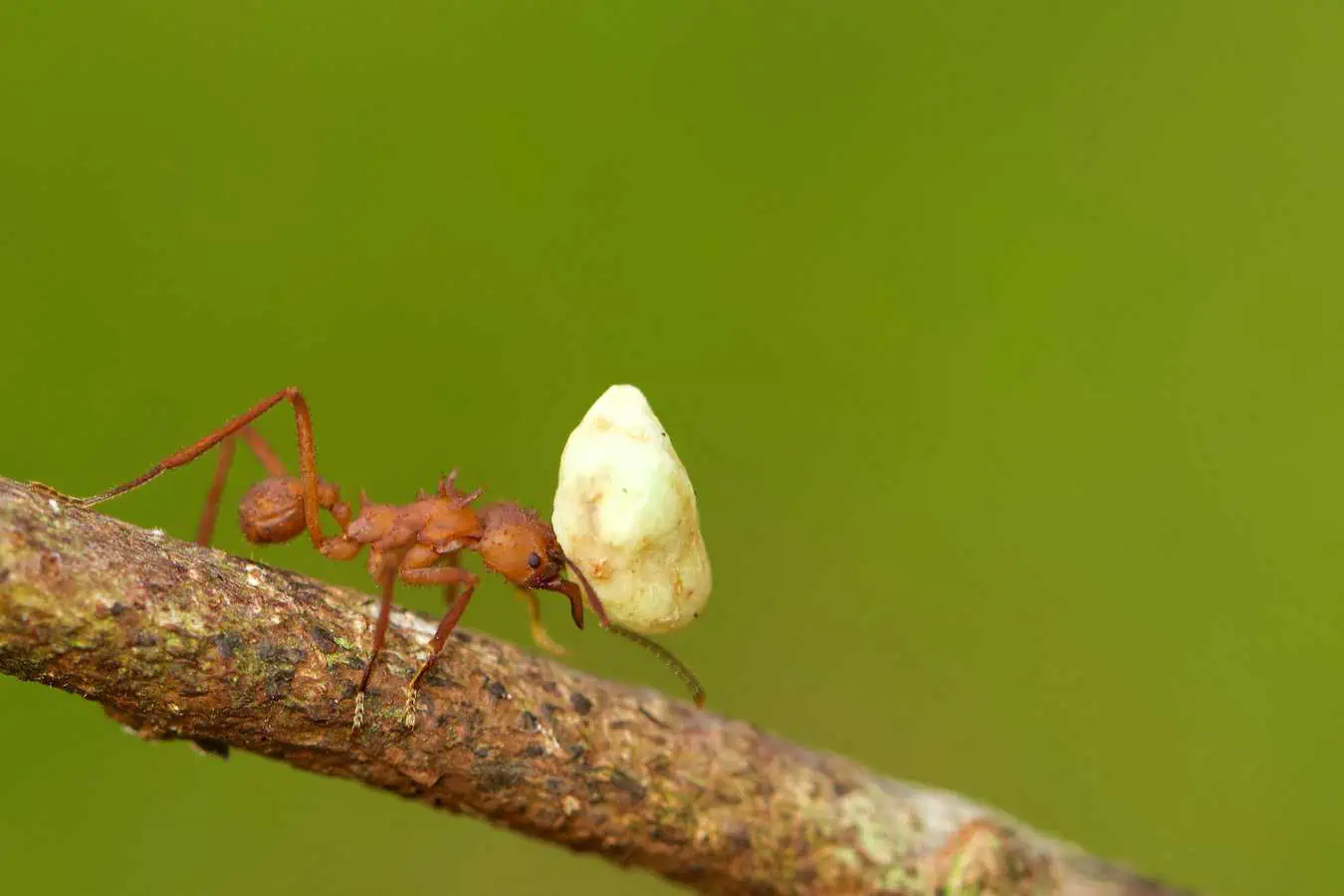
3. Nesting Opportunities
Ants are skilled architects, always on the lookout for cozy spaces to build their nests. Bathrooms provide ample hiding spots, including crevices, cracks, and voids in walls or floors. The warmth and relative seclusion of bathroom spaces make them attractive nesting sites for certain ant species.
4. Entry Points for Ants in Bathroom
- Cracks and Gaps
Ants are incredibly skilled at finding entry points into your home, and your bathroom is no exception. Even the tiniest cracks or gaps in walls, floors, or windows can serve as an open invitation for these persistent creatures. They can easily squeeze through these openings, making their way into your bathroom.
- Plumbing and Pipes
Ants can also use plumbing and pipes as their highways into your bathroom. They navigate through the intricate network of pipes, finding their way up from the drains or entering through gaps in the plumbing system. It’s essential to regularly inspect and seal any potential entry points to minimize the chances of ant infestations.
Understanding Ant Behavior in Your Bathroom
Before we dive into effective strategies for eliminating ants from your bathroom, it’s essential to understand their behavior. By gaining insights into their habits and communication methods, you’ll be better equipped to outsmart these resilient intruders.
1. Trail Formation: The Path to Success
When ants discover a source of food or water, they leave behind a chemical trail known as a pheromone. This trail acts as a roadmap, guiding other ants from their colony to the newfound resource. As a result, you often see ants marching in a seemingly orderly line, following the scent trail to and from their food or water source.
2. Colony Structure: A Complex Society
Ants live in highly organized colonies, with various castes assigned different roles. The worker ants, which you commonly encounter in your bathroom, are responsible for foraging, nest maintenance, and taking care of the queen and her offspring. Understanding this social structure can help you devise effective strategies for ant control.
3. Communication: Chemical Conversations
Ants communicate primarily through pheromones, chemical signals that convey important information to other members of their colony. Pheromones can be used to mark trails, identify nestmates, or even signal danger. By deciphering the intricate language of ants, you can disrupt their communication and hinder their activities in your bathroom.
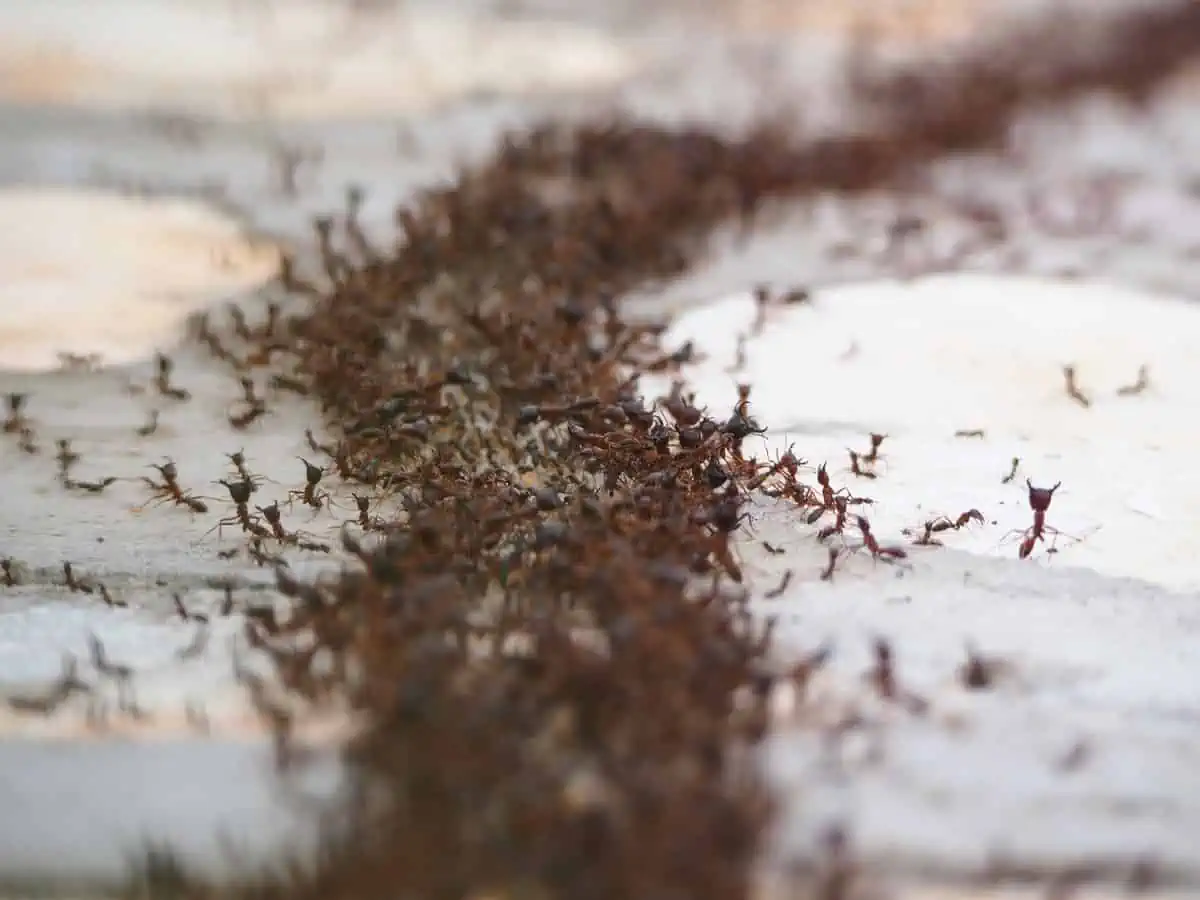
How to Get Rid of Ants in Your Bathroom
Now that we have a better understanding of why ants invade bathrooms and how they operate, it’s time to take action. Here are some proven strategies to evict these unwanted guests from your bathroom for good:
1. Identify and Eliminate Entry Points
To keep ants out of your bathroom, it’s crucial to identify their entry points. Inspect your bathroom thoroughly, paying attention to cracks, gaps, or other potential openings. Seal these entry points using caulk or silicone-based sealants to prevent ants from finding their way inside.
2. Eliminate Water Sources
To discourage ants from invading your bathroom, it’s crucial to fix any leaks, repair dripping faucets, and reduce excess moisture. Wipe down wet surfaces regularly and ensure proper ventilation to minimize condensation. By eliminating water sources, you make your bathroom less appealing to these unwanted guests.
3. Clean and Declutter
Regular cleaning of your bathroom is essential in preventing ant infestations. Pay attention to areas where residues can accumulate, such as around sinks, shower stalls, and bathtubs. Wipe away spills promptly and keep toiletries tightly sealed. Additionally, decluttering your bathroom minimizes hiding spots for ants and makes it easier to identify any potential entry points.
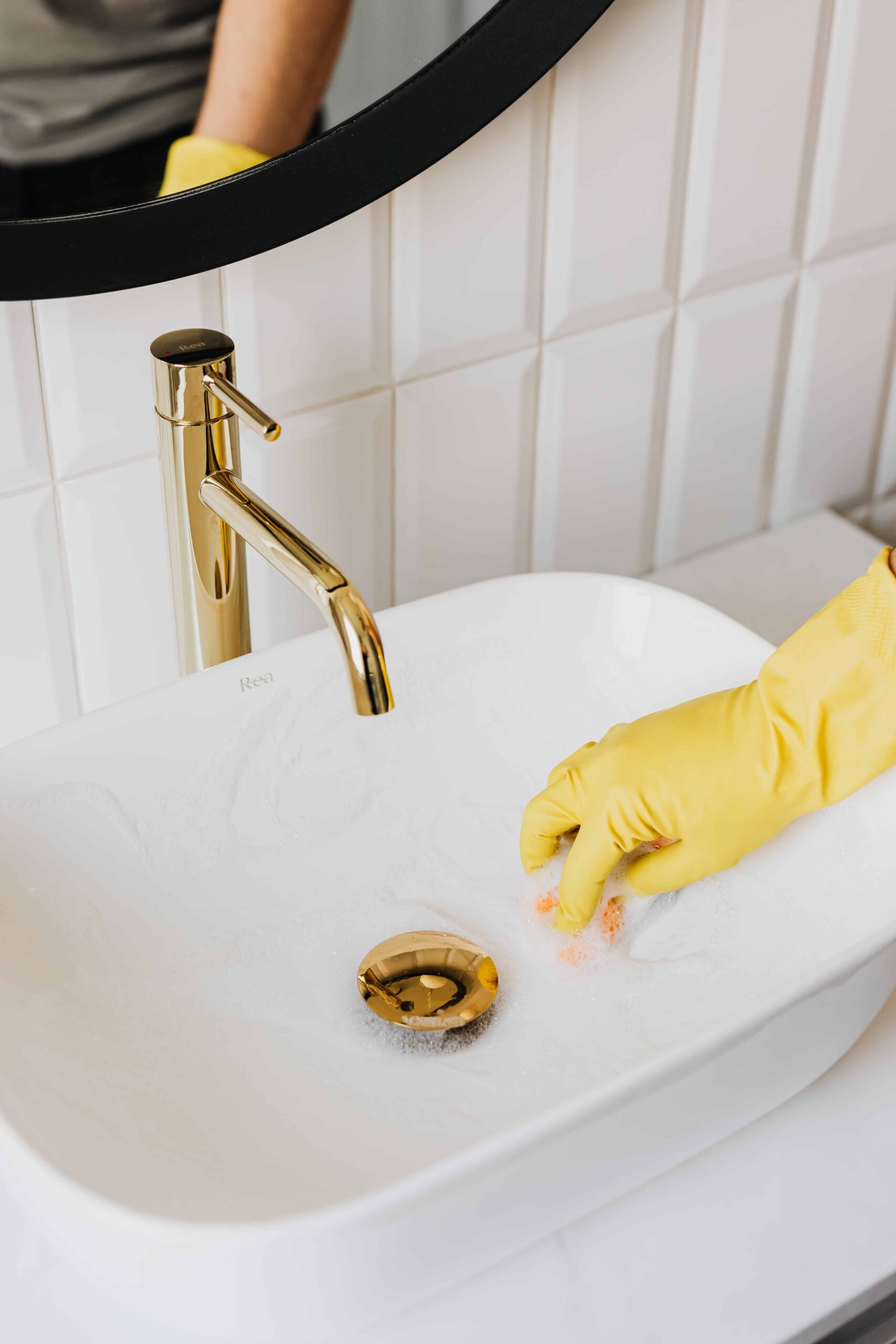
4. Fix Leaks and Reduce Moisture
Since ants are drawn to water sources, fixing leaks and reducing moisture in your bathroom is crucial. Repair any plumbing issues promptly and ensure that bathroom fixtures are not constantly dripping. Proper ventilation can also help reduce humidity levels, making your bathroom less inviting to moisture-seeking ants.
5. Natural Remedies and Ant Deterrents
Consider using natural remedies and ant deterrents to keep ants at bay. Certain scents, such as peppermint or vinegar, are known to repel ants. You can create homemade sprays or place cotton balls soaked in these solutions near ant-prone areas. Additionally, there are various commercially available ant baits and traps that can effectively target and eliminate ant colonies.
6. Professional Pest Control
If your ant problem persists despite your best efforts, it may be time to seek professional pest control services. Pest control experts have the knowledge and tools to identify the ant species infesting your bathroom and employ targeted treatments for effective eradication.
Conclusion
The presence of ants in your bathroom can be an annoying and unsightly problem. Understanding the reasons behind their invasion can help you address the issue more effectively. By eliminating moisture sources, removing food temptations, sealing entry points, and employing natural deterrents, you can regain control over your bathroom and bid farewell to these unwanted guests.
FAQs on Why are there Ants in my Bathroom.
1. Can ants in my bathroom pose any health risks?
While most household ants are not harmful, they can contaminate your bathroom surfaces and food if not controlled. It’s best to take preventive measures to avoid any potential health hazards.
2. Are there any specific ant species that are commonly found in bathrooms?
Various ant species may infest bathrooms, including odorous house ants, pharaoh ants, and Argentine ants. Identifying the specific species can help determine the most appropriate control methods.
3. How long does it take to get rid of an ant infestation in a bathroom?
The time it takes to eliminate an ant infestation depends on factors such as the size of the colony and the effectiveness of the control measures applied. It may take a few days to several weeks to completely eradicate the infestation.
4. Can I use chemical pesticides to get rid of ants in my bathroom?
Chemical pesticides can be effective in eliminating ants, but it’s important to use them with caution, following the instructions provided. Consider non-toxic alternatives first and consult a professional if needed.
5. How can I prevent ants from returning to my bathroom?
Regular maintenance, such as fixing leaks, practicing good hygiene, and sealing entry points, is crucial to prevent ants from coming back. Ongoing vigilance is key in keeping your bathroom ant-free.
6. How do I get rid of Ants in my Bathroom?
Dealing with those stubborn ants in your bathroom can be quite frustrating, but fear not! First, make sure to thoroughly clean any food spills and seal entry points. Then, utilize ant baits or a mixture of vinegar and water to wipe down surfaces. Let’s show those annoying ants who’s in charge!
7. Why are Ants attracted to my Bathroom?
Ants are drawn to your bathroom due to several factors. They are attracted to moisture, which is abundant in bathrooms. Additionally, they seek out food sources, such as crumbs or spills. Any unsealed cracks or gaps provide easy access for ants. Eliminating these attractants and sealing entry points can help deter them from invading your bathroom.
8. What does Ants in toilet means?
Finding ants in your toilet can indicate a few possibilities. It could mean that the ants are attracted to the water source or the moisture present in the bathroom. Alternatively, it might suggest that there is an issue with the plumbing, such as a leak or a crack, allowing the ants to enter through the pipes. It’s best to investigate further to determine the root cause and address it accordingly.
9. How do I get rid of Ants permanently?
To permanently eliminate ants, follow these steps. First, identify their entry points and seal them off with caulk or silicone. Next, keep your living area clean, especially the kitchen, to remove food sources. Use ant baits or sprays specifically designed to target ants. Finally, maintain a regular cleaning routine to prevent future infestations. Stay persistent, and you’ll bid those ants farewell for good!
10. What are the natural way to get rid of Ants in Bathroom?
If you prefer natural methods to eradicate ants from your bathroom, here are a few options. Start by sprinkling a line of cinnamon, peppermint oil, or citrus peels near entry points to deter them. You can also create a mixture of equal parts vinegar and water to wipe down surfaces or use a solution of dish soap and water to disrupt their trails. Regularly clean and remove any food sources to discourage their presence. Embrace nature’s remedies and reclaim your ant-free bathroom!

